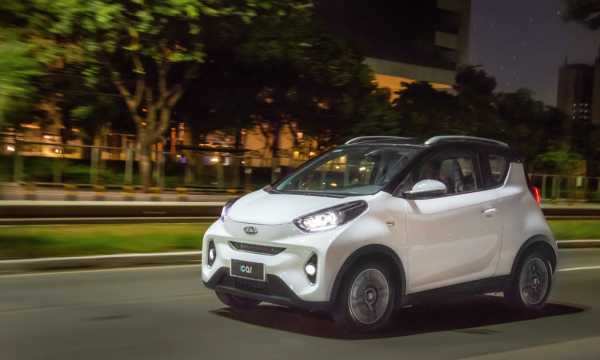Crafting Your Budget for a Smart Car Purchase
Starting the process of buying a smart car requires careful planning and a thoughtful budget.
As the automotive industry moves towards a more environmentally friendly and high-tech direction, people are increasingly interested in smart cars. Not only do these cars use less gas, but they also feature the latest technology to make driving safer and more connected.
If you want to buy a smart car, it’s important to create a budget that suits your needs. This guide shows you the most important things to consider and the steps you need to take to create a budget that fits your financial goals. This will help you make an informed choice.
1. Understand Your Financial Situation:
Before you start budgeting for a smart car, take a closer look at your current financial situation. Take a look at your monthly income, current expenses, and debts you owe. This clear picture helps you, for example, calculate how much you can spend on a car without jeopardizing your finances. Think about your emergency fund, savings, and any other financial goals you have, like buying a house or paying for college.
2. Create a Meaningful Budget:
Once you have a full understanding of your financial situation, you can create a reasonable spending plan for purchasing a smart car. Your budget should include not only the cost of the car itself but also costs such as insurance, maintenance, and electric vehicle charging points. When considering financing options, you should consider how interest rates may change. To avoid financial stress, don’t forget to leave room for costs to pop up.
3. Explore Smart Car Options:
There are different types of smart cars, each with different prices and different features. Research multiple brands and models to find one that suits your needs and price point. Consider things such as the amount of fuel the car uses, its safety, and whether new technology can be incorporated. If you’re interested in electric vehicles, check which charging stations are available near you and whether there are tax breaks or rebates if you choose an eco-friendly option.
4. Explore your Financing Options:
Once you know how much you can spend and what model of smart car you want, consider your financing options. Compare loan terms, interest rates, and down payment requirements from multiple lenders, including banks, credit unions, and auto stores. Be aware of any hidden fees and make sure you fully understand the terms of your loan agreement. Check out the different offers to find the conditions that best suit your budget.
5. Track Insurance and Maintenance Costs:
Smart cars often have new features that require special care to keep them working properly. Find out how much it costs to maintain the model you want and factor that into your budget. Additionally, get an insurance quote for the smart car you want to buy, and check if there are any discounts available on safety features or eco-friendly options.
6. Consider Long-term Savings:
While you focus on the short-term costs of a smart car, don’t lose sight of your long-term savings goals. Make sure your choices fit into your overall financial plan so you can continue saving for future projects, retirement, or unexpected expenses. By dealing with money in a balanced way, you can stay financially healthy.
7. Selecting the Right Payment Method:
A very important part of creating a budget is choosing the right way to pay for your smart car. Check whether a loan, lease, or purchase directly matches your financial goals. The loan allows you to own the car outright, but you will have to make monthly interest payments. Leasing can get you a newer model faster, but your mileage may be limited and you won’t build wealth. If you decide to buy something outright, make sure it doesn’t put a strain on your current money. You need to consider the initial costs and how they may impact your long-term financial goals.
8. Government Incentives for Research:
Governments around the world are increasingly introducing incentives to encourage people to buy smart, environmentally friendly cars. Find out what tax breaks, rebates or subsidies are available for smart car purchases in your area. These bonuses can have a significant impact on your overall budget, making the smart choice even more attractive. Make sure you understand the requirements and how to apply so you can take advantage of the financial aid available.
Conclusion
Budgeting for a smart car means taking a close look at your finances, researching different models, and carefully weighing your financing options and the costs associated with them. By creating a realistic budget and considering your long-term financial goals, you can make smart choices that will not only get you a smart car but also protect your overall financial health. If you want to drive with confidence into a smart, green future, you need to carefully plan, research, and weigh your options.
FAQs
1. How do I find out how much I can spend on a smart car?
To create a budget you can stick to, first look at your monthly income, current expenses, and financial goals. Consider the costs beyond the price of the car itself, such as insurance, maintenance, and the infrastructure required to charge an electric vehicle.
2. What should I consider when considering smart car options?
Your research should take into account many different things, such as the amount of fuel the car uses, safety ratings, new technology, and your personal preferences. If you are considering purchasing an electric vehicle, check out the benefits of charging stations and the eco-friendly options there.
3. How do you choose the best way to pay for your smart car investment?
Research your financing options with multiple lenders, including banks, credit unions, and car dealerships. Review loan terms, interest rates, and down payment requirements. Be aware of undisclosed costs and make sure you fully understand the terms before making a decision.
4. How can I guess how much it will cost to keep my smart car in good condition?
Find out how much and what care your smart car needs. Consider any specialized technology that could impact maintenance costs. Work these prices into your budget to ensure you get a complete plan for your money.
5. What long-term savings goals should I consider when developing a smart car budget?
Don’t lose sight of your big financial goals, such as retirement savings, plans, or unexpected expenses. For the sake of long-term financial health, make sure your smart car purchase aligns with these long-term goals.
6. How to choose the best payment method for smart cars?
Check whether a loan, lease, or purchase directly matches your financial goals. Consider factors such as interest rates, and monthly payments and how this will affect your long-term financial goals. Choose a payment method that fits your budget and gives you the freedom you need.
 City Life with Compact Cars: Navigating the Concrete Jungle
City Life with Compact Cars: Navigating the Concrete Jungle
City life has its problems and needs, and traveling is one of the most important of them. […]
More Tips for a Smooth Car Financing Journey
Tips for a Smooth Car Financing Journey
When you buy a car, obtaining financing is an important part of the process. Making smart financing […]
More The Ultimate Sports Car Buying Guide
The Ultimate Sports Car Buying Guide
For people who love cars, there’s no denying the appeal of fast cars. Many people’s dreams come […]
More